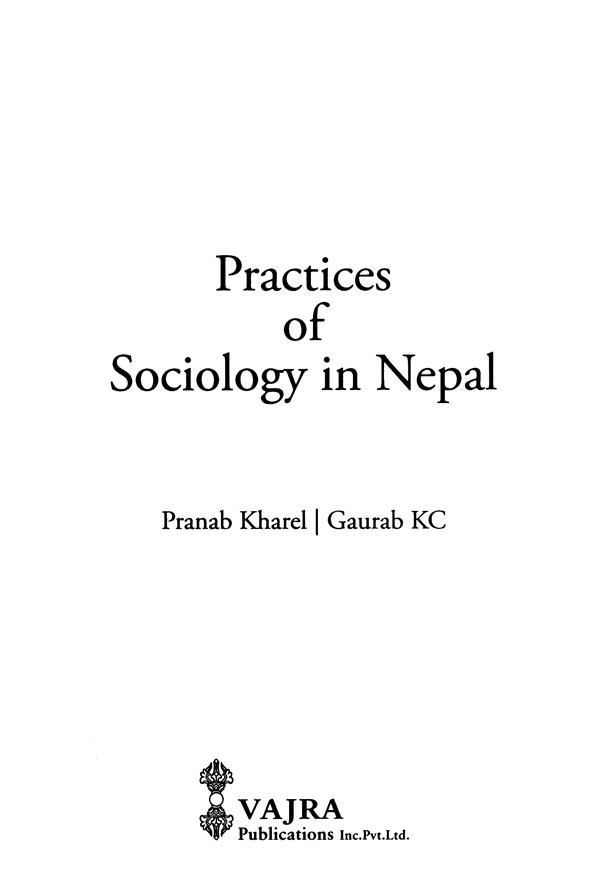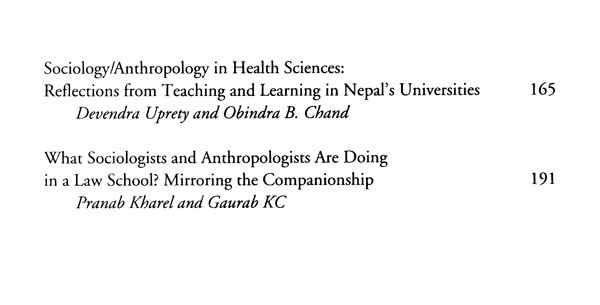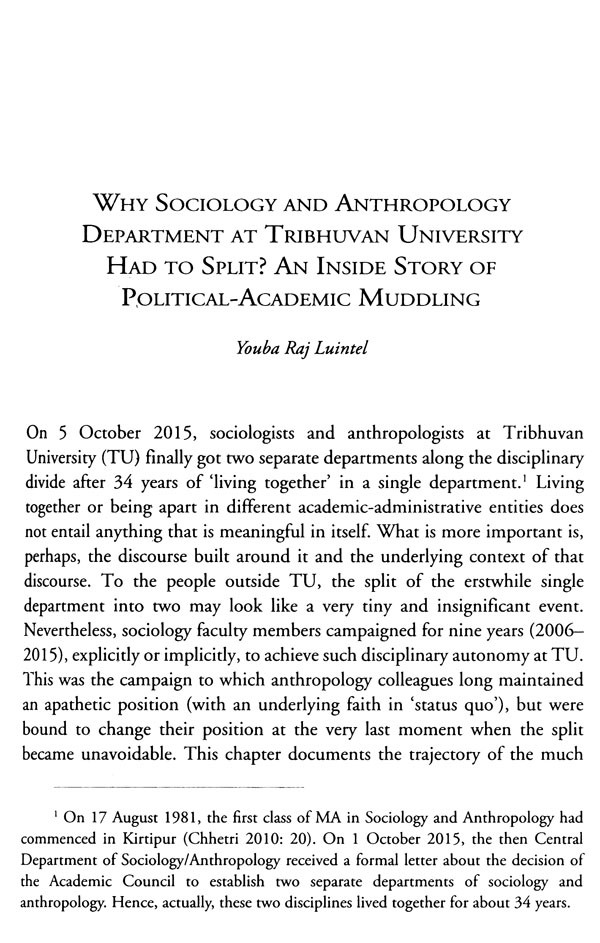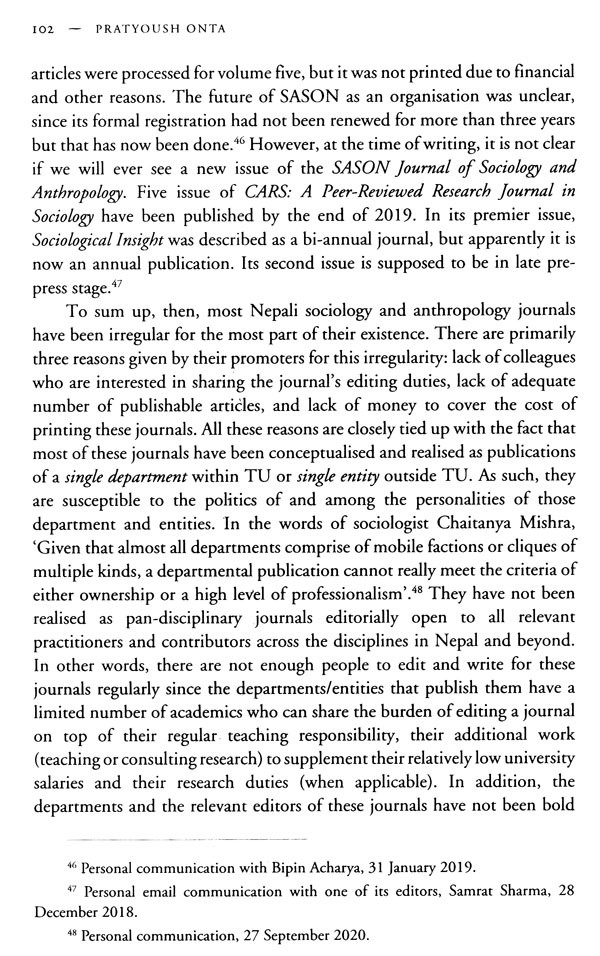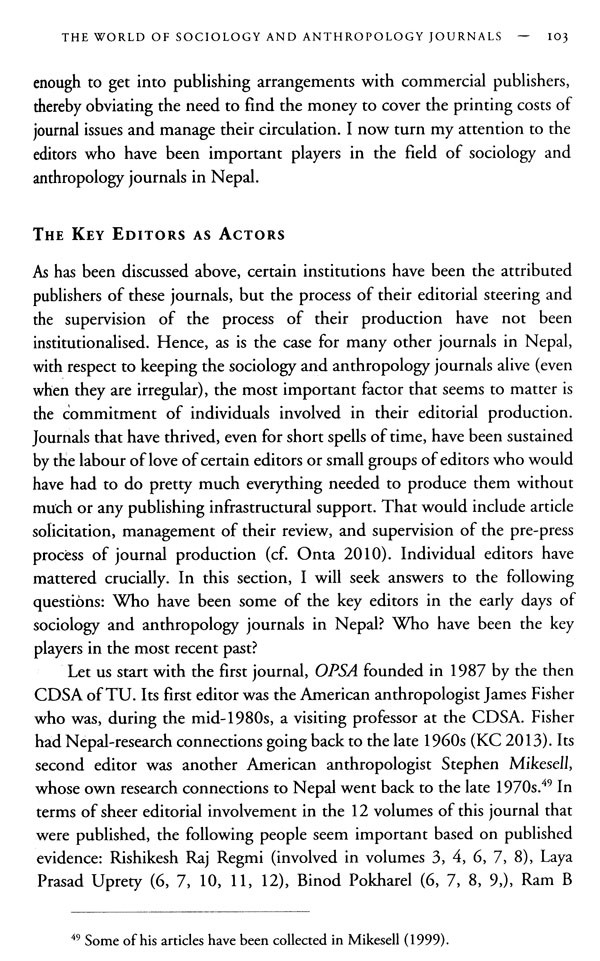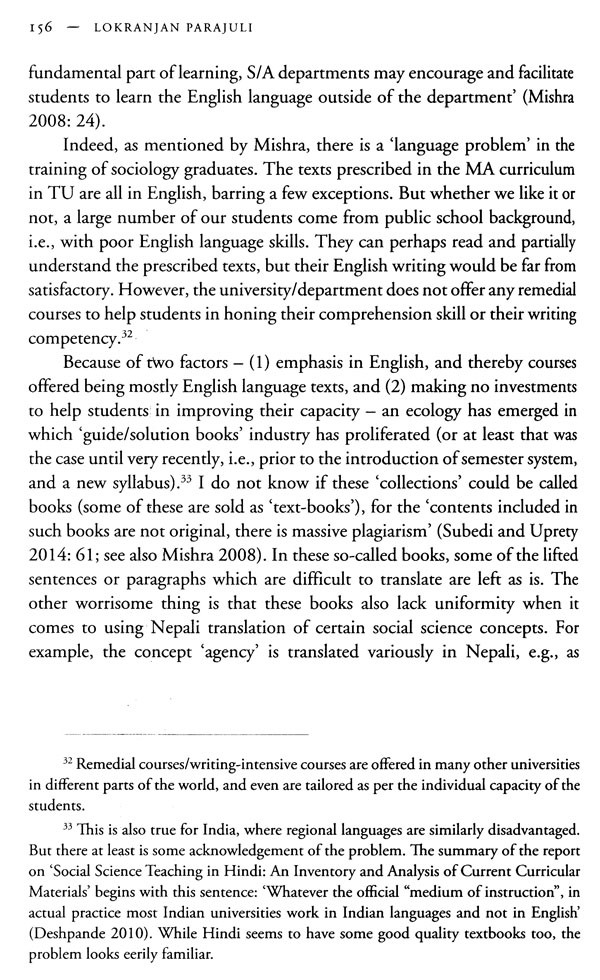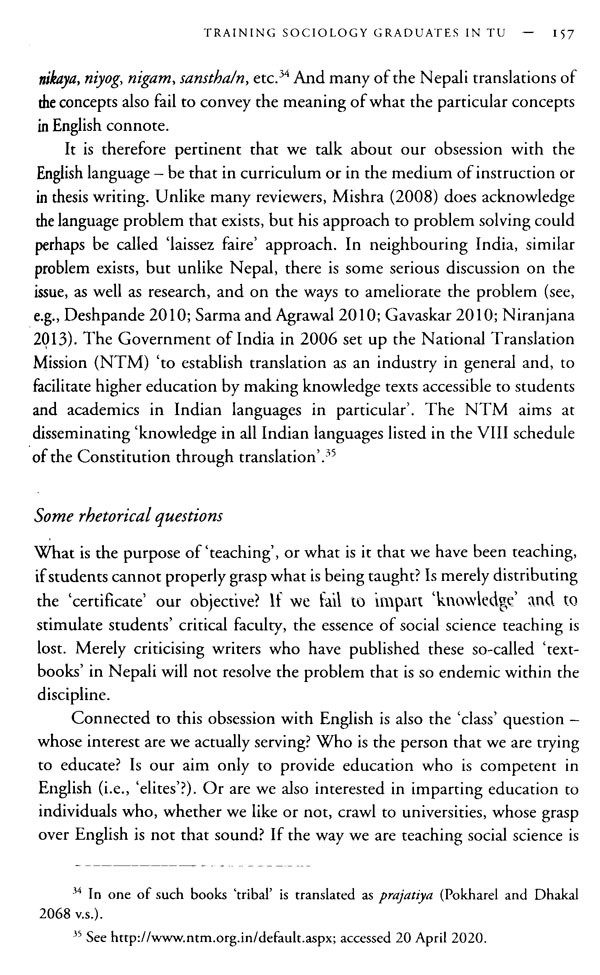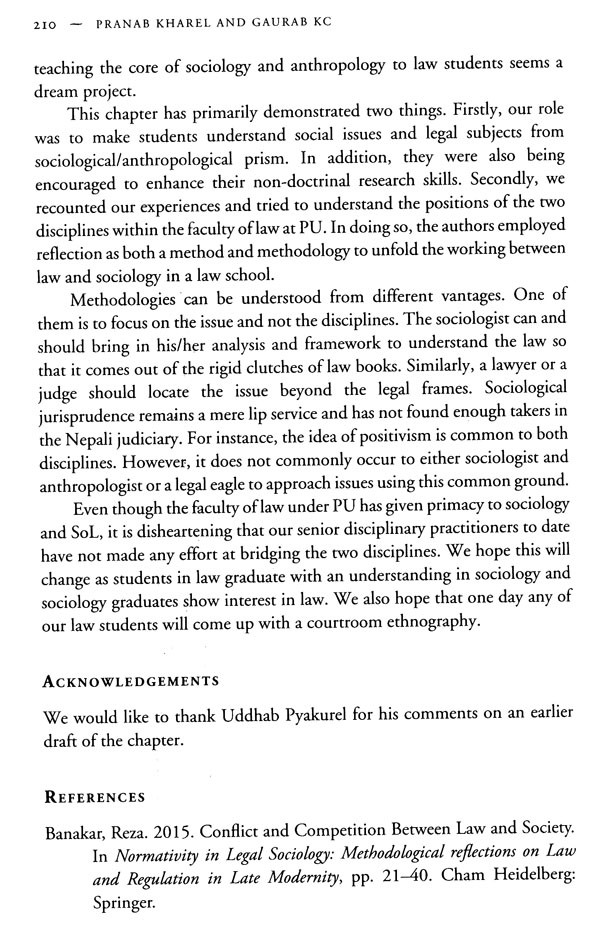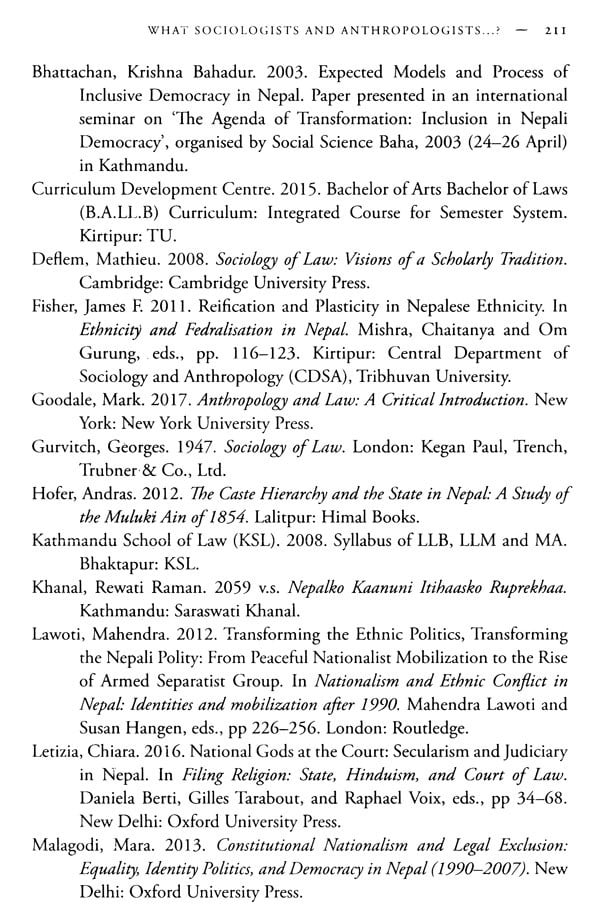About the Book OBSED CAL Sociology and anthropology in Nepal have so far shrugged off identifying IMA its identity. One of the reasons this is KED practitioners' relentless reliance on the west. The cookie-cutter approach EDBAC of disciplinary history writing tradition is so worn out that competing perspectives and alternative narratives are still The Practices of HEME SFED CI Sociology in Nepal is both a representative and reflective dialogue that LABI analytically submerges into the sociology of and 'on' Nepal. In assessing EOLOGY LEMBID and reassessing Nepali sociology and anthropology, the centricity of this CREDIT TION book revolves around the idea of practice. All seven chapters are congruent BA in charting out the different shades of practices within the university set TOUES up. The book raises pertinent questions on the need for cross-fertilization SOCIAL of ideas and methodologies among and between various social sciences. It PLEX also points towards the neoliberal pressure exerting at the social sciences at the universities in Nepal. The book makes an honest plea for reexamining TR pedagogic and epistemic issues facing Nepali sociology and anthropology. The first-hand experiences of all the contributors have CTION 100 brilliantly kindled the fresh and critical debates on disciplinary history, CISS ET teaching, supervision, research, writing, allied publications and actoef DE institutional politics. Indeed, the thoughts and reflections provided here have seriously given a new direction for Nepali sociology and anthropology. TUATE CA] This book is an invaluable resource to students, professionals, practitioners [UALIZE and social science enthusiasts who are interested in the sociology and anthropology of Nepal. Additionally, the book will also serve as a reference IVE LAW EEXPE ONA for any other South Asian practitioners of sociology and anthropology in NATIVE identifying similar issues in their respective contexts.
Introduction This book emerged from several years of guff' that took place between the two editors and other colleagues in many informal sittings. The conversations The idea of 'guff' is used here in the sense of a significant 'free' space of opinion making. Guff, in this sense, is both about space and about space-making through conversations (critical or otherwise) taking place in any sitting, setting or space (similar to chautari/chautara in Nepali or salon in French). Guff is relevant as a mundane practice in the public life of Nepal, as elsewhere, not necessarily as an elitist phenomenon. An interesting parallel can be drawn here from the writings of Indian historian Dipesh Chakrabarty, linguist Suniti Kumar Chattopadhyay and sociologist Benoy Kumar Sarkar, all of whom considered 'adda', similar to what we mean by guff, as significant spaces for opinion-making. According to Chattopadhyay, adda is a 'place' for 'careless talk with boon companions' or 'the chat of intimate friends' (quoted from Chakrabarty 2009: 180). In a similar vein, Chakrabarty identifies adda as 'the practice of friends getting together for long, informal and unrigorous conversations' (Chakrabarty: 181). Unlike Jurgen Habermas, Chakrabarty locates a possible alternative modernity platform in adda, while sociologist Benoy Kumar Sarkar has projected adda as an everyday philosophical discourse (Sarkar wrote mostly in Bengali). Adda is derived from the Sanskrit word 'add'. In colloquial Nepali, adda refers to government administrative offices. However, adda is also used in colloquial Nepali to refer to a free space where people engage in guff. One can find several addas where people are informal, loudy and critical to various social and political issues. Developing guff as a serious social science discourse is yet to take place in Nepali academia, even though the term has wider currency in popular parlance.
**Contents and Sample Pages**
